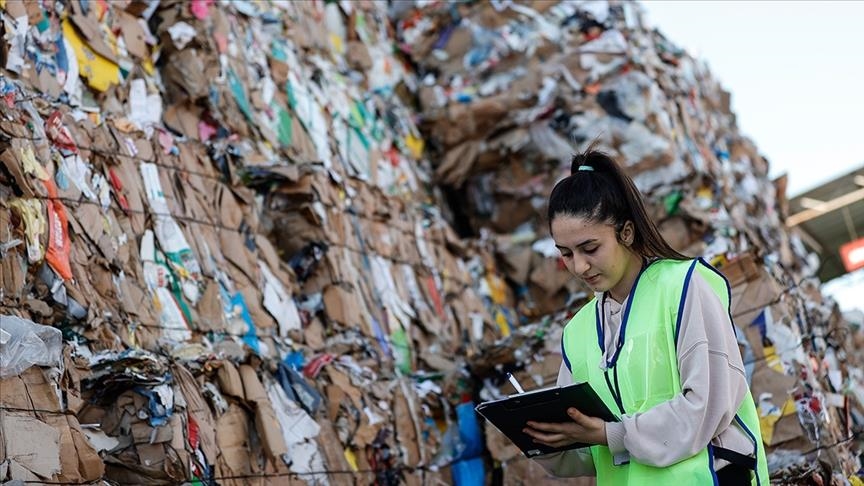ANKARA
Since its launch in 2017, Türkiye’s Zero-Waste project has stemmed 3.9 million tons of greenhouse gas emissions and saved the economy billions of dollars.
Initiated by the Environment, Urbanization, and Climate Change Ministry under the auspices of first lady Emine Erdogan, the project aims to contain waste under sustainable development principles and reduce pollution.
According to ministry data, 347 million trees, 87 million barrels of oil, and 650 million tons of raw materials were saved thanks to the Zero-Waste project.
Meanwhile, 145,000 institutions and buildings currently have a zero-waste management system.
Additionally, a total of 33.8 million tons of waste, including 20.4 million tons of paper, 5.4 million tons of plastic, 2.3 million tons of glass, 0.5 million tons of metal, and 5.2 million tons of organic waste, have also been recycled.
This recycled waste has brought 62.2 billion Turkish liras ($3.48 billion) to the Turkish economy since 2017.
Over 530 million kilowatt-hours of energy – about a full year of energy use of nearly 200,000 families – and 572 million cubic meters of water, equivalent to one year of water use of 2 million households, were also saved, according to the figures.
Under the project’s efforts to raise awareness nationwide, to date, some 16 million citizens have been educated on the goals and benefits of zero waste.

